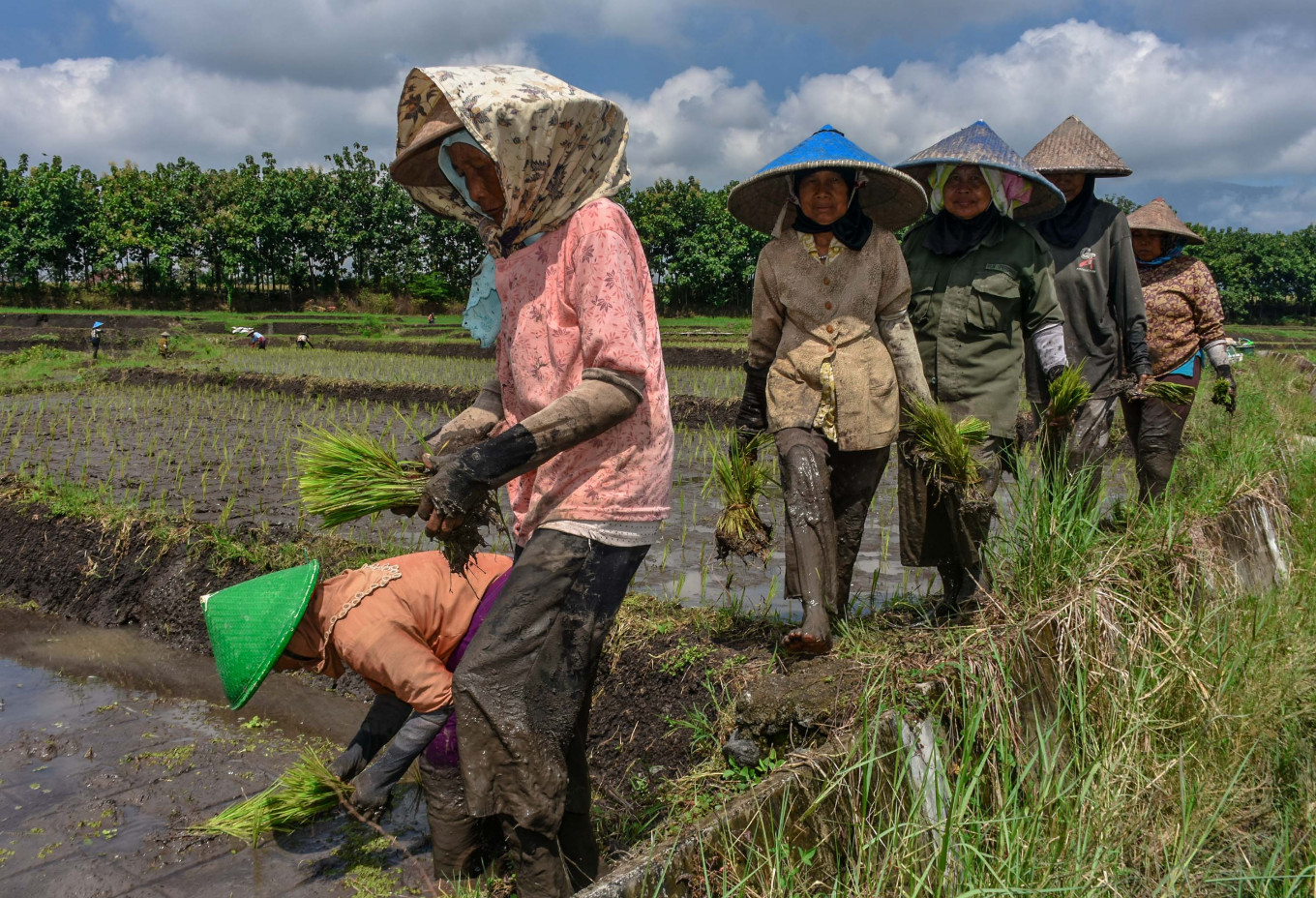Popular Reads
Top Results
Can't find what you're looking for?
View all search resultsPopular Reads
Top Results
Can't find what you're looking for?
View all search resultsChampioning ‘gotong royong’ spirit to the next level through Social Innovation Platform
Villages have been hampered by challenges such as access to sanitation facilities; currently only available to just 75 percent of people in rural areas.
Change text size
Gift Premium Articles
to Anyone
T
wo months before Indonesia gained its independence in August 1945, Indonesia’s founding father, Sukarno, addressed a throng of young intellectuals on the critical role of the spirit of mutual participation called “gotong royong” (mutual help) to build a new nation.
From villages in Java to rural communities in Sulawesi, the ancient tradition of gotong royong has for generations glued people in ethnically diverse Indonesia. The altruistic essence of gotong royong also embodies a universal idea of social harmony. Therefore, it's no surprise that other cultures have similar thinking. In Japan, for example, there is a concept known as “Wa” which means "harmony," and encourages communal action in which communities are expected to work together toward a common goal.
The tradition may have been around for centuries, but in the current era of shrinking resources and rising competition, how can we reshape gotong royong into a more relevant methodical strategy for accelerating inclusive growth?
One answer can be found among communities in Indonesia’s eastern island of Ponelo, and in West Java’s village of Ciwaru; two of the recent several sites of a pilot project involving the Social Innovation Platform (SIP), by the Indonesian Villages, Disadvantaged Regions and Transmigration Ministry (MoV) and UNDP.
Developed by UNDP and the Aire Lehendakaria Center (ALC), the SIP takes the gotong royong spirit one step further by involving community in development process from planning stages to implementation. It’s about putting practical value on community wisdom and knowledge in which everyone across the board including women, youth, the elderly and the disability groups have an opportunity to have their voices heard.
The results have been quite encouraging with the establishment of a community-based tourism initiative in the scenic village of Ciwaru in the West Java regency of Kuningan, where waterfalls dot the hilly area, and the revival of a local economy in Ponelo in the Gorontalo regency of North Gorontalo, where women’s groups and business owners at large receive training on marketing skills and digital literacy.
SIP implementation in rural areas such as Ciwaru and Ponelo can be an essential part of a national strategy to put villages at the forefront of development process. Indeed, without progress in villages, national progress will remain unfinished and incomplete. Yet many Indonesian villages have not fulfilled their full potential for prosperity.
Villages have been hampered by challenges such as access to sanitation facilities; currently only available to just 75 percent of people in rural areas. More people in villages have also been classified as poor compared to 84 percent in urban areas. Women’s empowerment also remains challenging. For instance, women's participation in agriculture, the backbone of the economy at the village level, must increase. Currently, only 37 percent of those working in agriculture are women.
Each village in Indonesia has its own distinct characteristics, familiar only to those who live there. Therefore, we should implement a rigorous and transparent scheme that puts villagers in charge, to address such challenges that may stymie our path to national success.
With that said, the SIP, with its emphasis on transparent planning processes, can complement the Indonesian government's annual contribution of US$5 billion through its signature Village Fund program. SIP’s monitoring tools can track development progress, as well as the fund’s distribution to Indonesia’s 75,000 villages.
Following the success in Ponelo and Ciwaru, last month UNDP and the MoV exchanged letters of cooperation, assuring further collaboration and scaling-up our work to three more provinces in Indonesia’s eastern provinces of Maluku, North Maluku and East Nusa Tenggara (NTT).
In expanding the application of SIP, UNDP and the MoV will work together with the International Fund for Agriculture Development (IFAD). The UN’s rural development agency has been the Ministry’s key partner since 2019, supporting rural communities through sustainable livelihoods in 1,500 villages across five Indonesian provinces.
The expanded use of SIP will also open up new opportunities for the Indonesian government to collaborate with diverse development partners, including nontraditional stakeholders such as the private sector and technological players, for village development. Indeed, such expansion of partnership could come handy as the country aims to foster stronger technological innovation in its next cycle of the National Medium-term Development Plan (RPJMN).
For centuries, Indonesian villages have served as models for the gotong royong tradition. Now, with more SIP adoption anticipated, Indonesian villages have the potential to become role models of inclusive progress involving everyone across the board – Leaving No One Behind.
It’s a value deeply ingrained in gotong royong as envisioned by Indonesia’s founding president Sukarno 77 years ago.
***
Abdul Halim Iskandar is Indonesian villages, disadvantaged regions and transmigration minister. Norimasa Shimomura is UNDP Indonesia resident representative.











